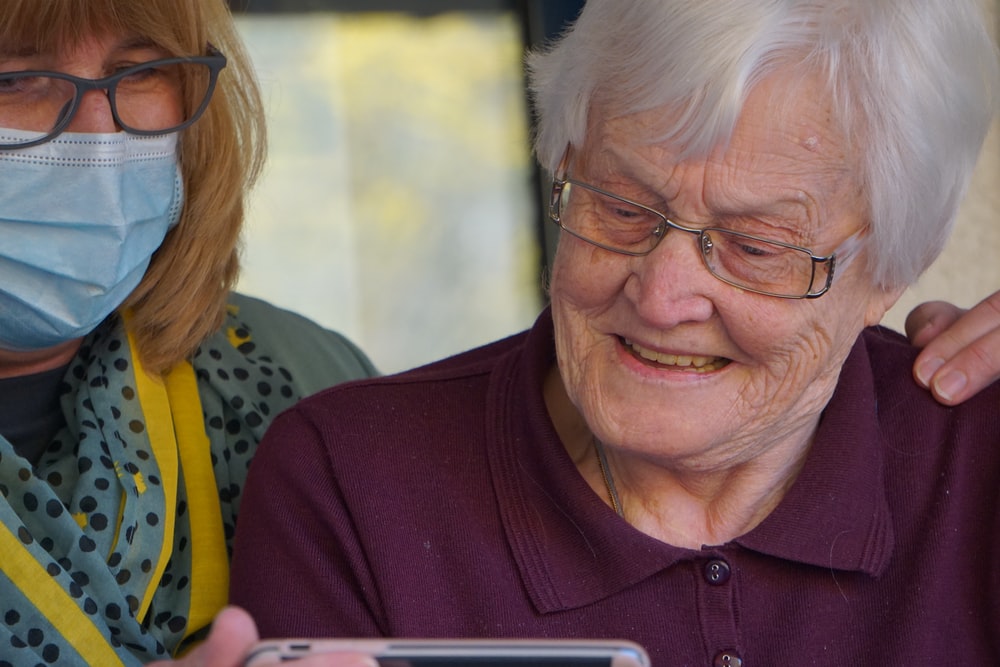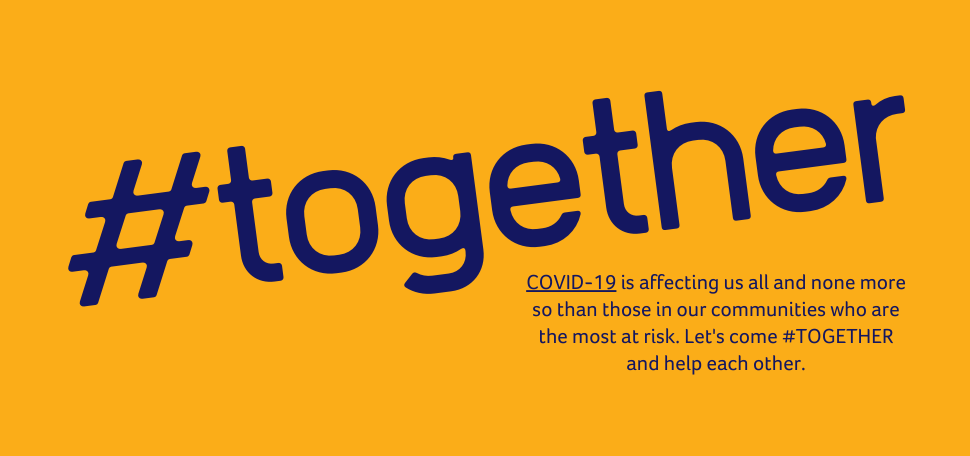Support and advice from Lambeth Council
Lambeth Council's website is regularly updated with key information
Lambeth Council's website is regularly updated with key information

New guidance on care home visiting policies
This guidance sets out a framework for local area policies, that take count of the circumstances of the individual care home (e.g. employee availability, resident demographics and outbreak status), and local circumstances (e.g. presence of outbreaks in the community).
Ultimately, the decision on whether or not to allow visitors, and in what circumstances, is an operational decision and therefore for the provider and managers of each individual setting to make. Nonetheless, before visits can go ahead there should be liaison with the local director of public health.
For a more detailed summary of this guidance, please visit the Mental Capacity Law and Policy website.
In any circumstance where a care home is required to reinforce restriction due to local outbreaks, Providers must do whatever they can to facilitate other types of contact with loved ones such as telephone, Skype, Whatsapp video calling, Zoom or Facetime.
The London Care Home resource pack also gives further guidance and advice.

Connect Lambeth can support with emergency shopping and medication pick up service, and access to food vouchers. They can help residents of Lambeth who are unable to leave the
To access this support email mycommunity@ageuklambeth.org or call 020 7346 6800 (choose option 6).
MYcommunity Gateway Service, with support from other staff and volunteers, continues to make sure our phones continue to be answered. We can provide advice, support and point you in the right direction for any additional support you may need.
MYadvice will continue to answer their advice line and deal with emails, with queries about housing, employment, benefits and money issues.
MYneighbour’s 120+ volunteer befrienders are continuing to link up with their clients using the phone.
The HandyFix Service is prioritising shopping and medication pick up for people who are housebound and have no one else who can help them. They will still be going out to priority jobs that keep older people safe in their homes such as key safes, hospital discharges, light bulb changes and grab rails.
MYsocial may not have any events coming up but the team are busy contacting members, encouraging them to link up with each other and even doing the occasional virtual coffee morning.
Their #Together campaign promotes three things:
For more information and details on how to contact MYCommunity, visit their website.
Dasl have released a statement outlining how they will continue to provide support (including support with benefits, money, housing and debt) and advocacy services to disabled people in Lambeth. Wherever possible, this will be done via phone and email. Find out more.
Feeling lonely and want someone to talk to?
Dasl offer regular phone calls to disabled people who would like someone to talk to. Please contact our Enquiry Line on 020 7738 5656 between 9am and 5pm or email us at enquiry.line@disabilitylambeth.org.uk with your name and number; someone will get back to you as soon as possible.
Advocacy
Dasl's Advocacy service is providing support in a number of ways including over the phone and video to ensure advocacy provision can be provided to maximise your rights at this time. We are continuing to support Lambeth Council fulfil its Care Act advocacy duties. Contact the Advocacy team on 020 7501 8966 or email your name, number and brief details to advocacy@disabilitylambeth.org.uk.
Managing Your Direct Payment
Dasl's Direct Payments support service will provide information and advice to Direct Payments users and people who employ Personal Assistants / carers. We are mainly communicating by phone and email, but can explore other options such as video calls. Contact the Direct Payments team on 020 7501 8960 or by email at: direct.payments@disabilitylambeth.org.uk
If you need Personal Protective Equipment (PPE) for Personal Assistants / carers, these are the options:
RAD's services are continuing via webcam. Please contact RAD staff to make an appointment:
-email RAD advice@royaldeaf.org.uk, or
-SMS RAD on 07912 630786
The Gaia Centre which supports Lambeth residents who are survivors of gender based violence, including domestic and sexual violence, are open and accepting referrals. They are providing 1:1 support via telephone and email during a time where survivors may feel additionally isolated and at risk due to coronavirus.
To make a referral or for a survivor to self-refer call: 020 7733 8724 or email lambethvawg@refuge.org.uk
For more information please see the Refuge website
In an emergency call police on 999.
During the coronavirus pandemic the Alzheimer's Society have advice and practical tips for people living with dementia and those supporting them – either in the same household or from a distance.
Anyone affected by dementia can call their support line on 0333 150 3456.
You can also see the full range of free publications or use the online tool to find dementia information and support visit the Alzheimer's Society website
Their website will be updated regularly, including details about how they Alzheimer’s Society can help. This will provide support to help you get through this difficult time.
Lambeth Council have also compiled details on some of the support services that are available, to help people and their families who are impacted by dementia during this crisis. This can be found on their website.
The Lambeth Food Bank Fund has launched to support our community and the organisations that can have the most impact on those that are most vulnerable. Anyone who would like to donate can do so via the link above.
To find your local foodbank to donate to please visit the Trussell Trust website.
Lambeth Mutual Aid Groups are also supporting Lambeth residents. Join the Facebook group to find your local Whatsapp group and post requests for support such as food drop-offs if you're self-isolating. Note these are volunteer-led groups so please be very careful about sharing your personal details and do not give people you don’t know access to your bank cards.
If you are a local community organiser, the most important thing you can do is ensure your group considers safeguarding practices. Adopting simple precautions like keeping records of money spent and providing shopping receipts supports you in helping your neighbourhoods whilst protecting vulnerable residents.
How they can help: Urgent mental health support over the phone
Who they can help: All Croydon, Lambeth, Southwark and Lewisham residents
How to get support: Call the helpline 0800 731 2864
How they can help: The Samaritans provide urgent mental health support over the telephone
Who they can help: All Lambeth residents (national helpline)
How to get support: Call: 116 123 or email: jo@samaritans.org
Home Instead Senior Care deliver care care to the residents of Wandsworth, Lambeth and Dulwich. They have a guest blog from Russell Treasure, Mindfulness Coach from Manchester, offering tips and guidance on mindfulness for older people.
The Lambeth Safer Children Partnership has gathered useful resources to help professionals, parents and young people.
Mencap have created some easy read information about coronavirus for you to use, as well as information based on the latest guidance from the government. To access this easy-read guide, visits Mencap's website.
Beyond Words is a charity that provides books and training to support people who find pictures easier to understand than words. They have created a free download which will help people to understand what to do if you have Coronavirus and how to keep yourself and those who you care about safe. The story also shows how to safely help others who may be self-isolating.
Supplementary text at the end of the story gives information on where people can seek help if they are unwell and signposts to other useful resources.
To access this free resource please visit their website.
NHS England has produced a video to help people with a learning disability, autism or both, to use the NHS 111 service.
Photosymbols have created a set of posters to help explain what to do to keep yourself and others safe during the coronavirus outbreak. They are all available to download from their website.
Doctors of the World have translated NHS Guidelines in to 43 languages. To access this information, visit their website.

Predicted service gaps may open up opportunities for exploitation or abuse. Legislative amendments will not remove the duty of care towards an individual’s risk of serious neglect or harm.
As a frontline worker you are the eyes and ears that may first pick up any signs of abuse. Here is a checklist of things you can do:
•Talk to your patients, residents or clients about the increased risk of abuse at this time.
• Be aware that any changes in behaviour or demeanour could indicate abuse.
• Advise people not to answer the door to strangers – and be aware of fake ID.
• Try not to alarm people but ask them to be wary of offers to help, particularly from strangers.
• Advise people to check with family, friends or paid support that offers of support, advice and help are legitimate.
• Warn people against responding to any text, email or phone call from an unidentified source. Explain that fraudsters will imitate official bodies such as the government or the NHS - and they do it very well!
• Advise people that they should never give their personal data, passwords or pin numbers to anyone. Official financial bodies and other organisations will never ask for them.
• If you know of a person who has been subjected to, or is at risk of, domestic abuse – if it is safe to talk to them, try to assess the current situation. Make sure they know that help is available if they need it and who to contact both for advice and support and in an emergency. (The Gaia Centre which supports Lambeth residents who are survivors of gender based violence, including domestic and sexual violence, are open and accepting referrals)
• If you have a concern that someone is being abused or neglected, it is important that you raise that concern internally, in line with your organisation’s policy and procedure. This is usually with your direct manager or supervisor, though your organisation may also have a safeguarding lead.
People with conditions such as dementia, learning disability or significant mental health problems (or shorter-term issues like drunkenness or concussion) may, in some situations, lack the mental capacity to make a particular decision. And so, when people are having their lives affected on a grand scale by the coronavirus, it is important to know what protections the MCA gives them, both during the crisis and in more typical times.
The Mental Capacity Act has not been altered by emergency legislation. While the basic law remains the same, there are implications for the use of the MCA during the coronavirus outbreak.
The LSAB’s Performance and Quality subgroup have developed guidance on options available for carrying out MCA assessments including a template to support professionals completing assessments during this time.
For more guidance on MCA and DoLS, visit SCIE's website.
Advice and reassurance around DoLS arrangements available to download here.
This page is regularly updated and includes resources relating to the MCA Act.
Subtle signs of abuse and/or neglect may not be as obvious during phone/video calls. Victims of abuse may be unable to speak freely if speaking from home.